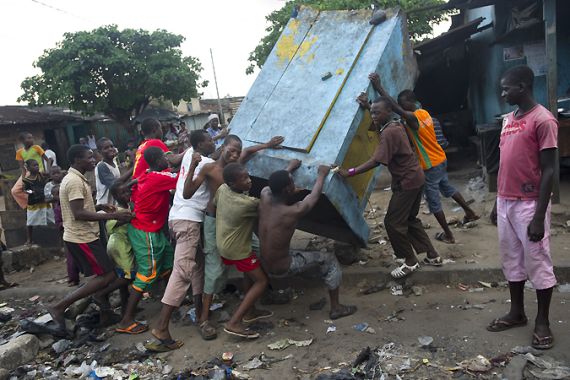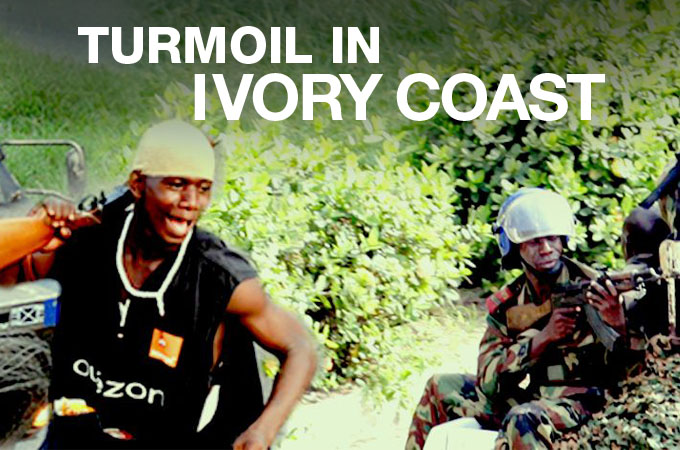Ivory Coast: The brink of civil war
Laurent Gbago’s refusal to step down threw the country into turmoil and onto the world stage.

 |
| Widespread violence and threats of civil war led to a highly-contested intervention by French forces [REUTERS] |
In an vote that was meant to be the last step of a peace process that began after the country’s civil war ended in 2003, the Ivory Coast descended into chaos after Laurent Gbagbo refused to step down after losing presidential elections in October 2010 to Alassane Ouatarra.
International consensus over the election results notwithstanding, Ouatarra spent four months holed up in a hotel, guarded by UN peacekeepers as forces loyal to both leaders battled it out in different parts of the country, resulting in the deaths of about 3000 people and forcing the displacements of some 500,000 others.
The “Paris of Africa” – as the Ivory Coast is known – became fraught with mass murder, rape and pillage as the standoff continued and the country veered ever so close to a fully-fledged second civil war.
Of particular concern to commentators was the perceived lack of action from the African Union (AU) who sent a series of delegations to resolve the dispute peacefully. After a month of failed negotiations, fighting intensified, while the AU and the West African bloc ECOWAS moved to cut Gbagbo’s access to state resources. The AU also pushed for the possibility of an “inclusive government” that would incorporate “an exit plan” for Gbagbo.
As the AU tried to localise the affair, and keep the dispute within Africa’s control, international reaction remained muted even as the violence intensified in late March.
Mediations failed to make any impression and Ouatarra’s forces, including former rebels from the 2002 civil war, started taking the west of the country, village by village, and soon enough motioned to enter Abidjan.
But Ouatarra’s forces battled to make in-roads into Gbagbo’s compound and UN and French forces intervened on April 3, under the pretext of “protecting civilians”, launching an offensive against Gbagbo’s army, weapons base and his compound that eventually paved the way for his arrest and the end of a new civil war.
 |
| Click for full coverage on the Ivory Coast |
France’s leading role in the Ivory Coast intervention raised eyebrows of the former coloniser’s agenda, especially in light of Gbagbo’s claims that western powers were actively backing Ouatarra.
Following the capture of Gbagbo and the end of the standoff, human rights organisations accused both sides of severe rights violations.
In August 2011, the UN reported that eight mass graves were found in Abidjan.
The International Criminal Court (ICC) issued a warrant for Gbagbo, resulting in his extradition to The Hague.
But this has left a cloud over a series of allegations of war crimes leveled against the new president Alasane Ouatarra, despite promises that all guilty parties will face justice. A truth and reconciliation commission (TRC), modeled on South Africa’s TRC was set up in September amid confusion whether it will issue pardon and amnesty.
The jury is still out on whether Ivorians are ready to continue with the democratic process, as many questions remain unanswered.